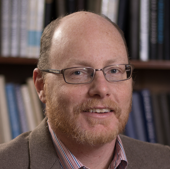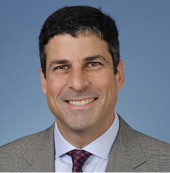Media tip sheet: Economics of critical minerals
The outsized role critical minerals play in defense and renewable energy applications fuels much of the attention on this sector now. China has raced ahead of the rest of the world in mining, refining and selling critical minerals. A subset of critical minerals, rare earth minerals, often just called rare earths, are the crème del la crème in this arena. China is even more dominant in the rare earth space. Rare earths are put into magnets used to power sophisticated, often very small, electric motors.
OUR EXPERTS
Morgan Bazilian, director of the Payne Institute for Public Policy

Bazilian, formerly lead energy specialist with the World Bank, focuses on critical minerals security, metals for military use, investment and finance, supply chain resilience, and geopolitics. He is a member of the Council on Foreign Relations, the World Economic Forum’s Global Advisory Council on Energy, a Fellow of the Energy and Security Program at the Center for Strategic and International Studies, an Advisor for the Energy and Defense Initiative at the Atlantic Council, and a member of the Global Advisory Council of the Sustainable Finance Programme at Oxford University.
"Critical minerals have rapidly risen up the political agenda globally. They are foundational for both modern economies and national security," Bazilian said.
Ian Lange, professor of economics and business

Lange served as Chair of the U.S. Commodity Futures Trading Commission’s (CFTC) Role of Metals Markets in Transitional Energy Subcommittee. Additionally, he has served as Senior Economist for Energy at the Council of Economic Advisors for both the Trump and Biden administrations as well as spending time at the U.S. Environmental Protection Agency and the U.S. Department of Energy.
"Generally mining companies are facing what I tend to think of as a subsidized monopolist. They're facing Chinese firms that are subsidized by their national government, that in a lot of cases have zero cost of capital. And so, the price that they're trying to beat is sort of an unfair or a market-manipulated price," Lange said.
Rod Eggert, research professor of economics and business

Eggert has been active in critical minerals and materials since before it was a topic of public concern. He chaired the U.S. National Research Council committee that wrote the 2008 book Minerals, Critical Minerals, and the U.S. Economy. Since 2013, he has been deputy director of the Critical Materials Innovation Hub (CMI), previously known as the Critical Materials Institute. CMI, funded by the U.S. Department of Energy, is a research consortium of national laboratories, universities, and companies that aims to accelerate innovation in energy materials.
“A critical mineral or material is essential in a modern engineered component or system and subject to short-term supply-chain risks or longer-term concerns about availability. Which materials are ‘critical’ depends on the situation. What is critical for national security will differ from what is critical for energy technologies or the products a specific company manufactures," Eggert said.
Tom Brady, professor of practice in economics and business

Brady is the former chief economist for Newmont Mining. He is the founder of Brady Commodity Advisors, a consultancy providing broader commodity sector analysis and valuation. Brady collaborates with graduate students and faculty on applied critical mineral economic research as part of DOE’s Critical Materials Innovation Hub. He is currently teaching courses on Mineral Policy & International Investment and the Economics of Mineral Markets.
“Critical mineral markets vary greatly in size and scope, each requiring an in-depth understanding of the underlying geopolitical, technical and other fundamental drivers. With these markets, a ‘one size fits all’ approach does not work," Brady said.
Brad Handler, program director of the Payne Institute’s Energy Finance Lab

Handler directs finance and economics research across Payne’s program areas. His current research examines how project de-risking impacts investability and the cost of capital. He has over twenty years of natural resources investment analysis expertise as a sell side equity research analyst at several firms on Wall Street.
As governments are exploring how they can help enable critical minerals development, they will benefit from considering strategic priorities, project readiness and the entire value chain. Meanwhile, evidence is emerging that the capital markets will respond to clear steps to de-risk projects that give developers time to lower costs and compete in the marketplace," Handler said.




